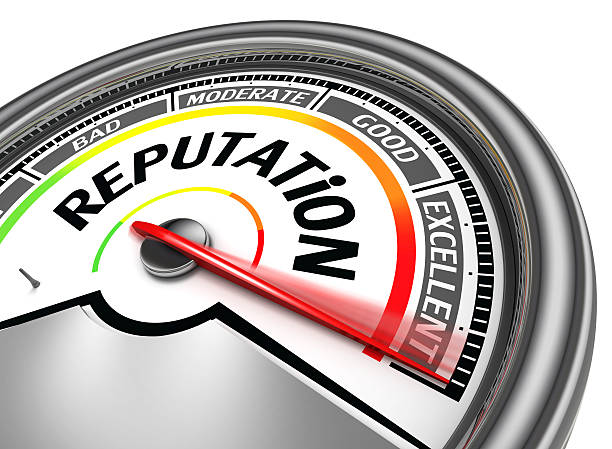High-Performance Leadership: A Curated Guide to the Best Leadership Books
Embarking on the Leadership Journey
Leadership is an essential element of success, both in the business world and beyond. It is a quality that inspires and motivates people to work together towards a common goal, driving progress and innovation. In today’s fast-paced and ever-changing environment, effective leadership is more crucial than ever. As such, it is vital for current and aspiring leaders to continually develop and refine their skills in order to navigate the complexities of the modern world.
One of the most effective ways to learn about and develop leadership skills is through the wisdom and insights found in books. Books offer a wealth of knowledge from the experiences, research, and perspectives of thought leaders and experts in the field of leadership. They provide valuable lessons, strategies, and tools that can be applied directly to the challenges faced by leaders in various industries and organizations.
This comprehensive guide to the best leadership books aims to provide you with a curated selection of titles that will help you become a more effective, high-performing leader. The books in this list cover a diverse range of leadership styles, principles, and concepts, ensuring that you will find something that resonates with your personal leadership journey. We will explore some of the most influential books on leadership, as well as newer titles that offer fresh perspectives on the subject.
The article is structured to give you an in-depth understanding of various aspects of leadership, delving into core concepts such as emotional intelligence, transformational leadership, authentic leadership, servant leadership, and adaptive leadership. In addition, we will discuss bestsellers and classics in leadership literature that have stood the test of time, as well as books that focus on leadership development, training, and diversity and inclusion.
Our goal is to provide you with a comprehensive and diverse list of leadership books that will enable you to develop and hone your leadership skills, ultimately allowing you to excel in your chosen field. Whether you are a seasoned leader looking to refine your approach or an aspiring leader seeking guidance on how to cultivate your potential, this guide has something to offer you.
As you delve into the world of leadership literature, keep in mind that leadership is a journey of continuous growth and self-improvement. As you read and learn from these books, be prepared to challenge your assumptions, expand your horizons, and embrace new ways of thinking and leading. By doing so, you will not only enhance your own leadership abilities but also inspire and empower those around you to reach their full potential. So, without further ado, let us embark on this journey of leadership development together, guided by the wisdom found within the pages of these exceptional books.
Core Concepts in Leadership
Leadership is a multifaceted discipline, encompassing a variety of styles, principles, and approaches. To gain a comprehensive understanding of what it means to be an effective leader, it is crucial to explore these core concepts and examine how they relate to one another. In this section, we will delve into five key areas of leadership: emotional intelligence, transformational leadership, authentic leadership, servant leadership, and adaptive leadership. By familiarizing yourself with these concepts, you will be better equipped to identify the leadership style that resonates with you and to apply these principles in your own leadership journey.
Emotional Intelligence
Emotional intelligence (EI) refers to the ability to recognize, understand, and manage our own emotions, as well as those of others. In the context of leadership, emotional intelligence plays a critical role in building strong relationships, fostering effective communication, and creating a positive work environment. High levels of emotional intelligence enable leaders to better understand the needs and motivations of their team members, allowing them to more effectively inspire, motivate, and support their growth. In the following sections, we will explore books that delve into the concept of emotional intelligence and its relevance to leadership.
Transformational Leadership
Transformational leadership is a style of leadership that focuses on inspiring and motivating followers to achieve their full potential and exceed their own expectations. This type of leader creates a vision for the future, fosters a sense of shared purpose, and encourages personal growth and development. By cultivating a culture of trust, collaboration, and empowerment, transformational leaders can drive significant positive change within their organizations. We will discuss several books that provide insights into the principles and practices of transformational leadership, helping you to become a more visionary and inspiring leader.
Authentic Leadership
Authentic leadership emphasizes the importance of self-awareness, transparency, and ethical decision-making. Authentic leaders are true to themselves, align their actions with their values, and consistently demonstrate a commitment to the greater good. By fostering an environment of trust and openness, authentic leaders can create strong connections with their team members and encourage them to bring their whole selves to work. In this section, we will explore books that delve into the concept of authentic leadership and provide guidance on how to develop and embody this leadership style.
Servant Leadership
Servant leadership is a leadership philosophy that prioritizes the well-being and growth of others, placing their needs above one’s own interests. Servant leaders seek to empower and enable their team members, fostering a sense of ownership and accountability. By adopting a humble and service-oriented mindset, servant leaders can create a supportive and inclusive work environment where everyone feels valued and respected. We will discuss books that offer insights into the principles and practices of servant leadership, helping you to develop a more compassionate and empowering leadership style.
Adaptive Leadership
In today’s rapidly changing world, adaptive leadership is becoming increasingly important. Adaptive leaders are able to navigate uncertainty and complexity, respond effectively to new challenges, and foster a culture of learning and innovation within their organizations. By embracing change and encouraging experimentation, adaptive leaders can drive continuous improvement and ensure long-term success. In this section, we will explore books that provide guidance on cultivating adaptive leadership skills and strategies, enabling you to become a more agile and resilient leader.
By exploring these core concepts in leadership, you will gain a deeper understanding of the various styles, principles, and approaches that can contribute to effective leadership. This knowledge will serve as a solid foundation upon which you can build and refine your own leadership abilities, allowing you to more effectively navigate the complexities of the modern world and inspire those around you to reach their full potential.
Emotional Intelligence and Leadership
Emotional intelligence is a critical component of effective leadership. Leaders with high levels of emotional intelligence can foster strong relationships, communicate effectively, and create a positive work environment. In this section, we will explore three influential books that delve into the concept of emotional intelligence and provide practical guidance for developing your own emotional intelligence in the context of leadership.
“Emotional Intelligence” by Daniel Goleman
In this groundbreaking book, psychologist Daniel Goleman introduces the concept of emotional intelligence, which he defines as the ability to recognize, understand, and manage our own emotions, as well as those of others. Goleman argues that emotional intelligence is a key factor in personal and professional success, often more important than cognitive intelligence (IQ). The book explores the five key components of emotional intelligence: self-awareness, self-regulation, motivation, empathy, and social skills. By understanding and developing these areas, leaders can become more effective in managing themselves and their teams, ultimately driving better outcomes.
“Primal Leadership” by Daniel Goleman, Richard Boyatzis, and Annie McKee
In “Primal Leadership,” Goleman, Boyatzis, and McKee build upon the foundation of emotional intelligence, focusing specifically on its application in leadership. The authors argue that the most effective leaders are those who possess high levels of emotional intelligence and can create “resonance” within their teams – a state of emotional alignment and shared vision. The book offers practical guidance on how to develop the four key domains of emotional intelligence in leadership: self-awareness, self-management, social awareness, and relationship management. Through case studies, research, and actionable advice, “Primal Leadership” equips readers with the tools they need to become emotionally intelligent leaders who inspire and motivate their teams to achieve outstanding results.
“The EQ Edge” by Steven J. Stein and Howard E. Book
“The EQ Edge” offers a comprehensive guide to understanding and developing emotional intelligence, both in personal and professional contexts. Stein and Book present a detailed framework for assessing and improving one’s emotional intelligence, focusing on 15 specific competencies, such as emotional self-awareness, empathy, assertiveness, and conflict resolution. The book is filled with real-life examples, practical exercises, and self-assessments designed to help readers build their emotional intelligence skills. By incorporating the insights and strategies presented in “The EQ Edge,” leaders can become more effective communicators, decision-makers, and problem-solvers, ultimately driving higher levels of performance and success within their organizations.
By reading and applying the lessons found in these books on emotional intelligence, leaders can gain a deeper understanding of their own emotions and the emotions of others. This understanding can lead to better communication, stronger relationships, and a more positive work environment – all critical elements of effective leadership. As you explore these books and develop your emotional intelligence, you will be better equipped to inspire, motivate, and support your team members in their pursuit of personal and professional growth.
Transformational Leadership
Transformational leadership is a style of leadership that focuses on inspiring and motivating followers to achieve their full potential and exceed their own expectations. By fostering a sense of shared purpose and encouraging personal growth and development, transformational leaders can drive significant positive change within their organizations. In this section, we will discuss three influential books that provide insights into the principles and practices of transformational leadership, helping you to become a more visionary and inspiring leader.
“Leadership” by James MacGregor Burns
In this seminal work, political scientist James MacGregor Burns introduces the concept of transformational leadership, which he contrasts with transactional leadership. While transactional leaders focus on achieving short-term goals through a system of rewards and punishments, transformational leaders inspire followers to strive for higher levels of performance and personal growth. Burns explores the characteristics and behaviors of transformational leaders, such as their ability to create a compelling vision, foster trust and collaboration, and cultivate an environment where innovation and learning can thrive. This book provides a solid foundation for understanding the concept of transformational leadership and its potential impact on organizations and society as a whole.
“The Leadership Challenge” by James Kouzes and Barry Posner
“The Leadership Challenge” by James Kouzes and Barry Posner is a widely respected guide to effective leadership, based on extensive research and real-world experience. The authors present a practical framework for transformational leadership, known as the Five Practices of Exemplary Leadership: Model the Way, Inspire a Shared Vision, Challenge the Process, Enable Others to Act, and Encourage the Heart. Through engaging stories, case studies, and practical exercises, Kouzes and Posner demonstrate how these practices can be applied in various settings to inspire extraordinary performance and create lasting change. “The Leadership Challenge” offers valuable insights and tools for aspiring and experienced leaders alike, helping them develop the skills and behaviors necessary for transformational leadership.
“The 5 Levels of Leadership” by John C. Maxwell
John C. Maxwell, a renowned leadership expert, presents a comprehensive model for leadership development in “The 5 Levels of Leadership.” The model outlines five progressive stages of leadership, each with its own set of skills, behaviors, and challenges: Position (Level 1), Permission (Level 2), Production (Level 3), People Development (Level 4), and Pinnacle (Level 5). As leaders progress through these levels, they become more effective in inspiring and motivating their followers, ultimately reaching a transformational leadership style at the Pinnacle level. Maxwell provides practical advice, strategies, and real-life examples to help readers develop their leadership skills and navigate the challenges of each level. By understanding and applying the principles outlined in “The 5 Levels of Leadership,” you can embark on a lifelong journey of growth and transformation, both as a leader and as an individual.
By exploring the principles and practices of transformational leadership presented in these books, you can develop the skills and mindset necessary to inspire your followers and drive positive change within your organization. Embracing a transformational leadership style can help you create a vision for the future, foster a sense of shared purpose, and encourage personal growth and development among your team members. As you incorporate the insights and strategies from these books into your own leadership journey, you will be better equipped to navigate the challenges of the modern world and empower those around you to achieve their full potential.
Authentic Leadership
Authentic leadership emphasizes the importance of self-awareness, transparency, and ethical decision-making. Authentic leaders are true to themselves, align their actions with their values, and consistently demonstrate a commitment to the greater good. By fostering an environment of trust and openness, authentic leaders can create strong connections with their team members and encourage them to bring their whole selves to work. In this section, we will explore three influential books that delve into the concept of authentic leadership and provide guidance on how to develop and embody this leadership style.
“Authentic Leadership” by Bill George
In “Authentic Leadership,” former Medtronic CEO Bill George shares his perspective on what it means to be an authentic leader, drawing from his own experiences as well as the insights of other prominent business leaders. George contends that authentic leaders are guided by their internal compass, which is shaped by their values, principles, and life experiences. The book presents a practical framework for developing authentic leadership, including five dimensions: understanding your purpose, practicing solid values, leading with heart, establishing connected relationships, and demonstrating self-discipline. Through engaging stories and actionable advice, “Authentic Leadership” offers a compelling vision of leadership that is grounded in integrity, passion, and a commitment to the greater good.
“True North” by Bill George and Peter Sims
In “True North,” Bill George and co-author Peter Sims expand on the concept of authentic leadership, focusing specifically on the importance of discovering and following one’s “True North” – the internal compass that guides our decisions and actions in accordance with our core values and beliefs. The authors conducted interviews with 125 leaders from various industries and backgrounds, distilling their insights into a comprehensive guide for developing authentic leadership. The book presents a series of exercises and self-assessments designed to help readers clarify their values, identify their passions, and develop their leadership skills. By exploring and embracing your True North, you can become a more authentic and effective leader, capable of inspiring trust, loyalty, and commitment in those you lead.
“The Discover Your True North Fieldbook” by Bill George, Nick Craig, and Scott Snook
As a companion to “True North,” “The Discover Your True North Fieldbook” provides a practical, hands-on guide for applying the principles of authentic leadership in your own life and career. The fieldbook is designed to be used in conjunction with “True North,” offering a series of exercises, reflection questions, and case studies that help readers delve deeper into the concepts presented in the book. By working through the fieldbook, you can gain a deeper understanding of your personal values, strengths, and areas for growth, ultimately helping you become a more authentic and effective leader.
By exploring the concept of authentic leadership through these books, you can develop the self-awareness, integrity, and passion necessary to lead with authenticity and inspire trust in your team members. Embracing an authentic leadership style can help you create an environment where open communication, ethical decision-making, and shared purpose thrive, ultimately leading to higher levels of engagement, satisfaction, and success for your organization. As you incorporate the insights and strategies presented in these books into your own leadership journey, you will be better equipped to navigate the challenges of the modern world and empower those around you to achieve their full potential.
Servant Leadership
Servant leadership is a leadership philosophy that prioritizes the well-being and growth of others, placing their needs above one’s own interests. Servant leaders seek to empower and enable their team members, fostering a sense of ownership and accountability. By adopting a humble and service-oriented mindset, servant leaders can create a supportive and inclusive work environment where everyone feels valued and respected. In this section, we will discuss three influential books that offer insights into the principles and practices of servant leadership, helping you to develop a more compassionate and empowering leadership style.
“Servant Leadership” by Robert K. Greenleaf
In this foundational work, Robert K. Greenleaf introduces the concept of servant leadership, which he defines as a leadership approach that emphasizes the well-being and growth of others, rather than the leader’s own authority or power. Greenleaf argues that true leadership emerges from a genuine desire to serve others and contribute to their success. The book explores the key characteristics of servant leaders, such as empathy, listening, stewardship, and commitment to the growth of others. By embodying these principles, leaders can create a more inclusive and supportive work environment, ultimately leading to greater satisfaction and performance for their team members.
“The Servant” by James C. Hunter
“The Servant” is a powerful parable that illustrates the principles of servant leadership through the story of a struggling business leader who attends a week-long leadership retreat led by a wise and insightful mentor. Through engaging storytelling and relatable characters, James C. Hunter presents a compelling vision of leadership that is grounded in service, humility, and the pursuit of the greater good. The book offers practical insights and guidance on how to develop the mindset and behaviors necessary for effective servant leadership, helping readers transform their approach to leadership and better serve the needs of their team members.
“Leading with a Limp” by Dan B. Allender
In “Leading with a Limp,” author and leadership consultant Dan B. Allender argues that effective leadership often emerges from personal vulnerability, humility, and a willingness to embrace our own imperfections. Allender contends that by acknowledging our weaknesses and “limps,” we can develop a more authentic and empathetic leadership style, ultimately enabling us to better serve and empower those we lead. The book presents a series of practical strategies and exercises to help readers cultivate a servant leadership mindset, fostering a work environment where trust, collaboration, and personal growth can flourish.
By exploring the principles and practices of servant leadership presented in these books, you can develop a leadership style that prioritizes the well-being and growth of your team members, fostering a sense of ownership and accountability. Embracing servant leadership can help you create a supportive and inclusive work environment, ultimately leading to higher levels of engagement, satisfaction, and success for your organization. As you incorporate the insights and strategies from these books into your own leadership journey, you will be better equipped to navigate the challenges of the modern world and empower those around you to achieve their full potential.
Adaptive Leadership
Adaptive leadership is a leadership approach that focuses on helping organizations and teams navigate the challenges and uncertainties of an ever-changing world. By fostering a culture of learning, experimentation, and resilience, adaptive leaders can guide their team members through periods of change and disruption, ultimately driving sustainable success. In this section, we will discuss three influential books that offer insights into the principles and practices of adaptive leadership, helping you to develop the skills and mindset necessary to lead your organization through the complexities of the modern world.
“The Practice of Adaptive Leadership” by Ronald A. Heifetz, Marty Linsky, and Alexander Grashow
In “The Practice of Adaptive Leadership,” authors Ronald A. Heifetz, Marty Linsky, and Alexander Grashow present a comprehensive framework for understanding and practicing adaptive leadership, based on decades of research and real-world experience. The book explores the key concepts of adaptive leadership, such as diagnosing the adaptive challenge, regulating distress, and creating a holding environment for productive work. Through engaging case studies, practical tools, and actionable advice, “The Practice of Adaptive Leadership” equips readers with the skills and strategies necessary to navigate complex challenges and drive positive change within their organizations.
“Leading in a Culture of Change” by Michael Fullan
In “Leading in a Culture of Change,” education and leadership expert Michael Fullan offers a practical guide for leaders who are seeking to create a culture of continuous improvement and innovation within their organizations. Fullan presents five core competencies of effective change leaders: moral purpose, understanding change, relationship building, knowledge creation and sharing, and coherence making. By developing these competencies, leaders can inspire their team members to embrace change, take risks, and collaborate in pursuit of shared goals. “Leading in a Culture of Change” provides valuable insights and guidance for leaders who are facing the challenges of an increasingly complex and unpredictable world.
“Switch: How to Change Things When Change Is Hard” by Chip Heath and Dan Heath
In “Switch,” authors Chip Heath and Dan Heath explore the psychology of change, offering practical strategies for overcoming resistance and inspiring lasting transformation. The book introduces a three-part framework for leading change, based on the metaphor of a rider, an elephant, and a path. The rider represents the rational mind, the elephant represents the emotional mind, and the path represents the situational environment. By addressing the needs of both the rider and the elephant and shaping the path to facilitate change, leaders can more effectively guide their organizations through periods of transition and uncertainty. “Switch” offers a compelling and accessible approach to change leadership, providing leaders with the tools and insights necessary to drive sustainable growth and adaptation.
By exploring the principles and practices of adaptive leadership presented in these books, you can develop the skills and mindset necessary to lead your organization through the complexities of the modern world. Embracing adaptive leadership can help you foster a culture of learning, experimentation, and resilience, ultimately driving sustainable success in the face of change and disruption. As you incorporate the insights and strategies from these books into your own leadership journey, you will be better equipped to navigate the challenges of the modern world and empower those around you to achieve their full potential.
Bestsellers and Classics in Leadership Literature
In this section, we will discuss four bestsellers and classic works in leadership literature that have stood the test of time and continue to offer valuable insights and guidance for leaders across various industries and contexts. These books cover a wide range of leadership principles and practices, providing a comprehensive understanding of what it takes to lead effectively and drive sustainable success.
“Good to Great” by Jim Collins
In “Good to Great,” renowned business consultant and author Jim Collins presents the findings of an extensive study that sought to identify the factors that distinguish great companies from merely good ones. Through a rigorous analysis of data and case studies, Collins and his research team identified seven key characteristics of great companies, which they dubbed the “Good to Great Framework.” These characteristics include Level 5 Leadership, the Hedgehog Concept, the Flywheel, and the Culture of Discipline, among others. “Good to Great” offers a compelling blueprint for organizational success, providing leaders with practical insights and strategies for transforming their companies from good to great.
“The 7 Habits of Highly Effective People” by Stephen Covey
“The 7 Habits of Highly Effective People” by Stephen Covey is a classic self-help book that has had a profound impact on personal and professional development since its publication in 1989. Covey presents a holistic approach to effectiveness, emphasizing the importance of character, principles, and values. The seven habits—Be Proactive, Begin with the End in Mind, Put First Things First, Think Win-Win, Seek First to Understand, Then to Be Understood, Synergize, and Sharpen the Saw—are designed to help individuals develop the skills and mindset necessary for personal and professional success. By incorporating these habits into their leadership practices, leaders can foster a culture of effectiveness, collaboration, and continuous improvement within their organizations.
“Start with Why” by Simon Sinek
In “Start with Why,” leadership expert and TED Talk sensation Simon Sinek argues that the most successful leaders and organizations are those that have a clear sense of purpose or “why” that drives their actions and decisions. Sinek presents the “Golden Circle” framework, which consists of three concentric circles: the outer circle represents “what” an organization does, the middle circle represents “how” it does it, and the inner circle represents “why” it exists. By starting with their “why,” leaders can inspire and engage their team members, foster a sense of shared purpose, and create a strong foundation for sustainable success. “Start with Why” offers a powerful and transformative approach to leadership, challenging readers to reevaluate their priorities and motivations as they seek to drive positive change within their organizations.
“The Art of War” by Sun Tzu
“The Art of War” is an ancient Chinese military treatise attributed to Sun Tzu, a philosopher and military strategist who lived during the Eastern Zhou Period of ancient China. Although its primary focus is on warfare and military strategy, “The Art of War” has been widely recognized for its timeless insights and wisdom on leadership, strategy, and human nature. Some of the key principles discussed in the book, such as the importance of adaptability, the power of deception, and the value of knowing oneself and one’s enemy, can be applied to various aspects of leadership and organizational management. By drawing on the timeless wisdom of “The Art of War,” leaders can develop a deeper understanding of the strategic and psychological aspects of leadership, ultimately helping them navigate the challenges and complexities of the modern world.
These bestsellers and classics in leadership literature offer a wealth of knowledge and inspiration for leaders seeking to develop their skills and drive sustainable success within their organizations. By exploring the insights and strategies presented in these books, you can broaden your perspective on effective leadership, foster innovative thinking, and strengthen your ability to make informed decisions in the face of uncertainty.
Leadership Development and Training
In this section, we will discuss three influential books that focus on leadership development and training, offering practical tools, techniques, and insights for leaders seeking to enhance their skills and drive performance within their organizations. These books cover a range of topics, from systems thinking and organizational learning to coaching and effective communication, providing a comprehensive understanding of the key competencies required for effective leadership in today’s complex and rapidly changing world.
“The Fifth Discipline” by Peter Senge
In “The Fifth Discipline,” author and organizational learning expert Peter Senge presents a groundbreaking approach to organizational success, based on the concept of the “learning organization.” Senge argues that in order to thrive in an increasingly complex and unpredictable world, organizations must develop the capacity to continually learn, adapt, and innovate. The book introduces five disciplines that form the foundation of a learning organization: systems thinking, personal mastery, mental models, shared vision, and team learning. By cultivating these disciplines, leaders can foster a culture of continuous learning and improvement, ultimately driving sustainable success and competitive advantage. “The Fifth Discipline” offers a powerful and transformative approach to leadership development, challenging leaders to embrace a systems thinking mindset and foster organizational learning within their teams.
“Coaching for Performance” by John Whitmore
“Coaching for Performance” by John Whitmore is a seminal work on performance coaching and leadership development, offering practical guidance and tools for leaders who want to unlock the potential of their team members and drive high performance. Whitmore introduces the GROW model, a widely recognized coaching framework that stands for Goal, Reality, Options, and Will. The GROW model provides a structured approach to coaching conversations, helping leaders facilitate problem-solving, goal-setting, and personal growth within their teams. By incorporating the principles and techniques of performance coaching into their leadership practices, leaders can empower their team members to take ownership of their development and contribute more effectively to the organization’s success.
“Crucial Conversations” by Kerry Patterson, Joseph Grenny, Ron McMillan, and Al Switzler
In “Crucial Conversations,” authors Kerry Patterson, Joseph Grenny, Ron McMillan, and Al Switzler present a practical guide to mastering the art of effective communication during high-stakes, emotionally charged situations. The book offers a comprehensive framework for navigating crucial conversations, with specific strategies for creating a safe environment, maintaining mutual respect, and fostering open dialogue. By developing the skills and techniques outlined in “Crucial Conversations,” leaders can build stronger relationships, resolve conflicts, and drive performance within their teams. Effective communication is a critical leadership competency, and “Crucial Conversations” provides valuable insights and guidance for leaders seeking to enhance their communication skills and navigate challenging conversations with confidence and skill.
By exploring the insights and strategies presented in these leadership development and training books, you can develop the key competencies required for effective leadership in today’s complex and rapidly changing world. By cultivating a culture of continuous learning, honing your coaching and communication skills, and embracing a systems thinking mindset, you can empower your team members to achieve their full potential and drive sustainable success within your organization. As you incorporate the lessons from these books into your own leadership journey, you will be better equipped to navigate the challenges and opportunities of the modern world and inspire those around you to achieve exceptional performance.
Diversity, Inclusion, and Leadership
In today’s globalized and interconnected world, fostering diversity, inclusion, and equity within organizations has become increasingly important for both ethical and business reasons. A diverse and inclusive work environment can drive innovation, improve decision-making, and enhance employee engagement and satisfaction. In this section, we will discuss three influential books that focus on diversity, inclusion, and leadership, offering practical insights and guidance for leaders seeking to create more inclusive, equitable, and high-performing organizations.
“Inclusion: Diversity, the New Workplace, and the Will to Change” by Jennifer Brown
In “Inclusion: Diversity, the New Workplace, and the Will to Change,” author and diversity and inclusion expert Jennifer Brown provides a comprehensive guide to fostering an inclusive organizational culture that embraces the unique talents and perspectives of all employees. Brown shares her personal journey as a diversity and inclusion advocate, along with practical strategies, case studies, and actionable advice for leaders who want to drive positive change within their organizations. The book emphasizes the importance of authentic leadership, allyship, and the “will to change” as key drivers of a more inclusive and equitable workplace. By embracing the insights and strategies presented in “Inclusion,” leaders can create an environment where all employees feel valued, respected, and empowered to contribute their best.
“The Diversity Advantage” by Lenora Billings-Harris
In “The Diversity Advantage,” author and diversity strategist Lenora Billings-Harris offers a compelling case for the business benefits of diversity and inclusion, along with practical tools and techniques for leveraging these advantages within organizations. Drawing on extensive research and real-world examples, Billings-Harris demonstrates how a diverse and inclusive workforce can drive innovation, improve problem-solving, and enhance overall performance. The book provides a roadmap for leaders seeking to create a more inclusive culture, with specific guidance on topics such as unconscious bias, inclusive leadership, and building diverse teams. “The Diversity Advantage” equips leaders with the knowledge and strategies necessary to harness the power of diversity and inclusion and drive sustainable success in today’s complex and competitive business landscape.
“How to Be an Inclusive Leader” by Jennifer Brown
In “How to Be an Inclusive Leader,” Jennifer Brown builds upon her previous work in “Inclusion” by offering a practical and actionable guide for leaders who want to develop the skills and mindset necessary for fostering an inclusive work environment. Brown introduces the “Inclusive Leader Continuum,” a four-stage model that outlines the developmental journey of an inclusive leader, from unaware to advocate. By understanding and progressing through these stages, leaders can develop the self-awareness, empathy, and cultural competence required to effectively lead diverse teams and create a culture of inclusion. The book also provides tools, exercises, and case studies to help readers apply the concepts and strategies in their own leadership practice. “How to Be an Inclusive Leader” is an essential resource for leaders seeking to create more inclusive, equitable, and high-performing organizations.
By exploring the principles and practices of diversity, inclusion, and leadership presented in these books, you can develop the skills and mindset necessary to create a more inclusive and equitable work environment, ultimately driving innovation, engagement, and success within your organization. As you incorporate the insights and strategies from these books into your own leadership journey, you will be better equipped to navigate the challenges and opportunities of the modern world and empower those around you to achieve their full potential, regardless of their background, identity, or perspective.
The Power of Leadership and Continuous Learning
In this comprehensive exploration of high-performance leadership, we have discussed a wide range of topics, insights, and strategies from some of the best leadership books available. These books cover various aspects of leadership, including emotional intelligence, decision-making, team building, bestsellers and classics, leadership development and training, and diversity and inclusion. Each book offers valuable guidance and practical tools for leaders seeking to enhance their skills, drive performance, and create a more positive and effective work environment.
The world of leadership is ever-evolving, and today’s leaders face complex challenges and opportunities that require a diverse set of skills, knowledge, and perspectives. As we have seen throughout this article, continuous learning and self-improvement are essential for leaders who want to stay ahead of the curve and effectively navigate the complexities of the modern world. By exploring the wealth of knowledge and insights offered in these books, you can deepen your understanding of leadership, develop the competencies required for success, and inspire those around you to achieve their full potential.
As you embark on your own leadership journey, remember that the path to high-performance leadership is not a linear one. It requires ongoing reflection, self-awareness, and the willingness to adapt and grow in response to new challenges and opportunities. The books discussed in this article can serve as valuable resources and catalysts for growth, helping you to develop the skills, mindset, and practices necessary for effective leadership in today’s complex and rapidly changing world.
In conclusion, the pursuit of high-performance leadership is a lifelong journey, and the books highlighted in this article can provide invaluable guidance and inspiration along the way. By incorporating the insights and strategies presented in these books into your own leadership practice, you can drive sustainable success within your organization, foster a culture of excellence and innovation, and make a lasting impact on the lives of those you lead. Happy reading, and here’s to your continued growth and success as a high-performance leader.







